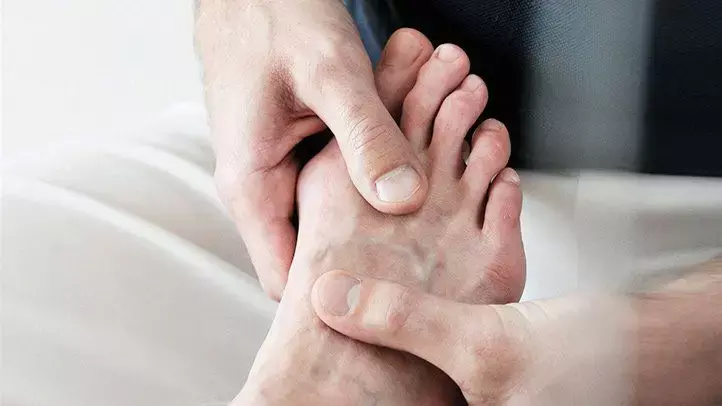- Home
- Medical news & Guidelines
- Anesthesiology
- Cardiology and CTVS
- Critical Care
- Dentistry
- Dermatology
- Diabetes and Endocrinology
- ENT
- Gastroenterology
- Medicine
- Nephrology
- Neurology
- Obstretics-Gynaecology
- Oncology
- Ophthalmology
- Orthopaedics
- Pediatrics-Neonatology
- Psychiatry
- Pulmonology
- Radiology
- Surgery
- Urology
- Laboratory Medicine
- Diet
- Nursing
- Paramedical
- Physiotherapy
- Health news
- Fact Check
- Bone Health Fact Check
- Brain Health Fact Check
- Cancer Related Fact Check
- Child Care Fact Check
- Dental and oral health fact check
- Diabetes and metabolic health fact check
- Diet and Nutrition Fact Check
- Eye and ENT Care Fact Check
- Fitness fact check
- Gut health fact check
- Heart health fact check
- Kidney health fact check
- Medical education fact check
- Men's health fact check
- Respiratory fact check
- Skin and hair care fact check
- Vaccine and Immunization fact check
- Women's health fact check
- AYUSH
- State News
- Andaman and Nicobar Islands
- Andhra Pradesh
- Arunachal Pradesh
- Assam
- Bihar
- Chandigarh
- Chattisgarh
- Dadra and Nagar Haveli
- Daman and Diu
- Delhi
- Goa
- Gujarat
- Haryana
- Himachal Pradesh
- Jammu & Kashmir
- Jharkhand
- Karnataka
- Kerala
- Ladakh
- Lakshadweep
- Madhya Pradesh
- Maharashtra
- Manipur
- Meghalaya
- Mizoram
- Nagaland
- Odisha
- Puducherry
- Punjab
- Rajasthan
- Sikkim
- Tamil Nadu
- Telangana
- Tripura
- Uttar Pradesh
- Uttrakhand
- West Bengal
- Medical Education
- Industry
Patients with OSA at Greater risk of Gout, finds study

Patients with OSA are at Greater Gout Risk suggests a new study published in the Cureus.
Obstructive sleep apnea (OSA) is a comorbidity, which has shared risk factors with gout as well as causes pathophysiological mechanisms causing hyperuricemia. The relationship remains contentious. TrinetX, a global federated research network that provides a dataset of electronic medical records from different healthcare organizations (HCOs). We utilized this network to query patients who had a BMI greater than 30 and then two subgroups were made based on the presence or absence of OSA. Furthermore, propensity score matching (PSM) was carried out to match age, sex, race, chronic kidney disease (CKD), heart failure, and the use of diuretics. Compare outcome analytic function was utilized to map the co-relation with Gout. Results: A total of 3541566 patients who had a BMI >30 were identified, out of which 817638 (23.09%) patients had OSA. 7.19% of patients with OSA had gout while 2.84% without OSA had gout (p<0.0001). The odds of having gout are 2.65 times higher in patients with OSA than patients without OSA (hazard ratio is 2.393, 95% confidence interval (CI) 2.367-2.419, p<0.0001). After PSM, both the groups of obese patients with and without International Classification of Diseases, 10th Revision (ICD-10) diagnosis of OSA included 801526 patients, within which 6.93% of patients with OSA had gout while 4.63% of patients without OSA had gout (p<0.0001). The odds ratio was 1.533 (95% CI 1.512-1.554, p<0.0001) and the hazard ratio was 1.404 (95% CI 1.386-1.423).The study demonstrated that there is a strong correlation between gout and OSA. Chronic hypoxia-induced hyperuricemia is the most widespread explanation. OSA is a treatable condition with timely diagnosis and proper treatment. Prospective cohort studies are required to further test the strength of the relationship between OSA and gout.
Reference:
Khandwala P, Desai D, Sen M. Obstructive Sleep Apnea: A Contributing Factor in Gout. Cureus. 2024 Jan 11;16(1):e52115. doi: 10.7759/cureus.52115. PMID: 38344618; PMCID: PMC10858747.
Keywords:
Cureus, obstructive sleep apnea, gout risk, big data analysis; clinical rheumatology; gout; obstructive sleep apnea (osa); risk factor analysis.
Dr. Shravani Dali has completed her BDS from Pravara institute of medical sciences, loni. Following which she extensively worked in the healthcare sector for 2+ years. She has been actively involved in writing blogs in field of health and wellness. Currently she is pursuing her Masters of public health-health administration from Tata institute of social sciences. She can be contacted at editorial@medicaldialogues.in.
Dr Kamal Kant Kohli-MBBS, DTCD- a chest specialist with more than 30 years of practice and a flair for writing clinical articles, Dr Kamal Kant Kohli joined Medical Dialogues as a Chief Editor of Medical News. Besides writing articles, as an editor, he proofreads and verifies all the medical content published on Medical Dialogues including those coming from journals, studies,medical conferences,guidelines etc. Email: drkohli@medicaldialogues.in. Contact no. 011-43720751


